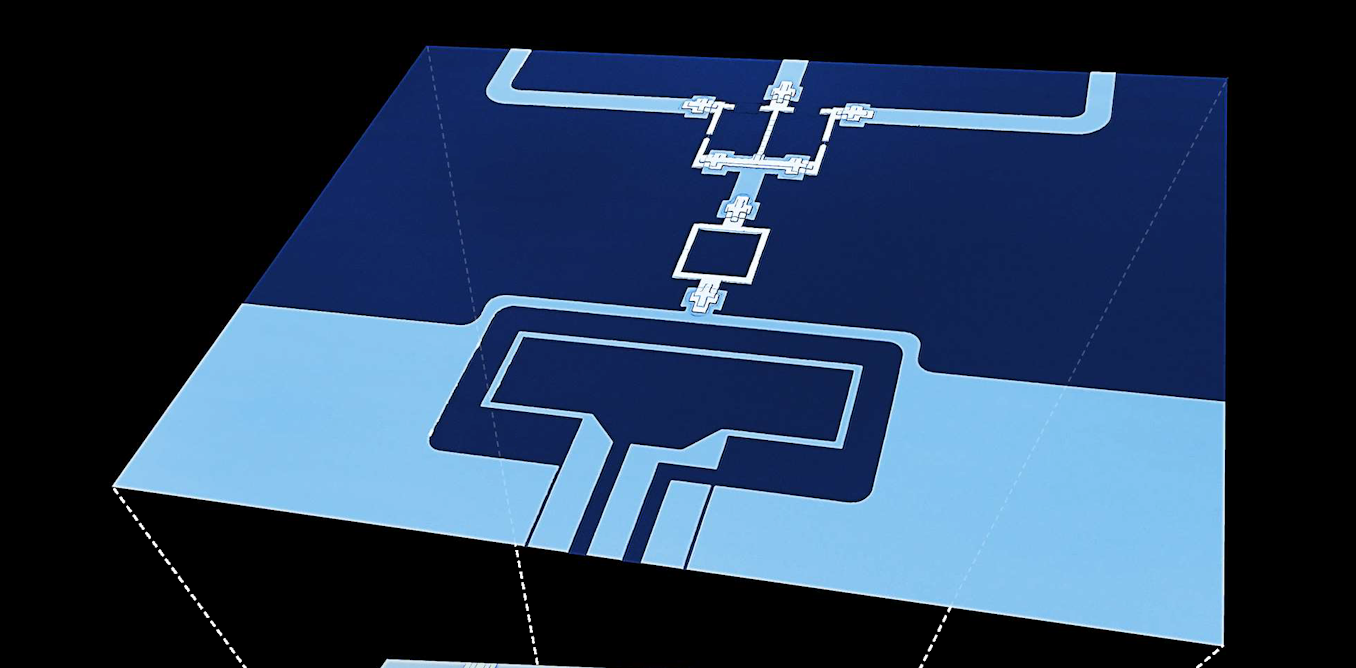Science
Nobel Prize Honors Pioneers of Quantum Technology Revolution

The 2025 Nobel Prize in Physics has been awarded to three scientists for their transformative work on superconducting circuits, which has played a crucial role in advancing quantum technology. This significant recognition highlights the importance of their research in demonstrating that quantum effects can persist in large electrical circuits, paving the way for practical applications in quantum computing and other fields.
The laureates, John Martinis, Michel Devoret, and John Clarke, made groundbreaking contributions in the mid-1980s. Their research focused on superconducting circuits made from materials like niobium and lead. These metals, when cooled to just above absolute zero, become superconductors—capable of carrying electrical current without generating heat. Their findings revealed that these circuits could exhibit quantum behavior, which was previously uncertain for larger systems.
In their landmark studies from 1984 and 1985, Martinis, Devoret, and Clarke demonstrated that superconducting circuits could be described as single quantum particles. This discovery was pivotal, showing that the voltages and currents in superconductors are governed by quantum mechanics. Their work confirmed that circuits have quantized energy levels and can exist in superpositions of multiple states, a fundamental principle of quantum physics.
Today, superconducting circuits are utilized in various applications, including fundamental physics research, the simulation of complex physical systems, and the development of advanced sensing technologies. For instance, Devoret’s group has recently achieved a near-ideal microwave amplifier using a superconducting circuit, which has implications for communications and scientific instruments. Similarly, Martinis’s team has explored the potential of these circuits to emulate groups of electron-like particles, a technique vital for studying fundamental physics.
The most profound impact of superconducting circuits has been in the realm of quantum computing. These circuits serve as a platform for qubits, the building blocks of quantum computers. In this context, multiple quantum systems can interact and become entangled, allowing them to function as a unified system. The combination of quantization, superposition, and entanglement provides quantum computers with their unique computational capabilities.
To effectively harness the power of quantum computing, qubits must maintain coherence, be controllable, and be scalable. While various technologies are under exploration—such as arrays of atoms, trapped ions, and photons—superconducting circuits strike a balance that makes them particularly advantageous. Their design flexibility allows researchers to achieve specific qubit behaviors while ensuring reliability and ease of control.
Research groups internationally are actively working to develop new superconducting qubit types, enhance their coherence, and improve their scalability. This academic research is complemented by efforts from companies and government laboratories, which focus on engineering large-scale quantum processors for practical applications.
The Nobel laureates’ influence extends well beyond their initial research. Martinis has previously led Google’s quantum processor development and currently runs his own company. Devoret continues to contribute to Google’s quantum initiatives, while Clarke, now retired, has pursued significant work on quantum circuits throughout his career. Their mentorship has shaped the careers of numerous researchers in the field, including those currently seeking to advance the technology they pioneered.
As we look to the future, the work of Martinis, Devoret, and Clarke serves as a foundation for ongoing research and innovation in quantum technologies. Their recognition with the Nobel Prize not only honors their past achievements but also inspires the next generation of scientists to push the boundaries of what is possible in quantum computing and beyond.
-

 World4 months ago
World4 months agoTest Your Knowledge: Take the Herald’s Afternoon Quiz Today
-

 Sports4 months ago
Sports4 months agoPM Faces Backlash from Fans During Netball Trophy Ceremony
-

 Lifestyle4 months ago
Lifestyle4 months agoDunedin Designers Win Top Award at Hokonui Fashion Event
-

 Entertainment4 months ago
Entertainment4 months agoExperience the Excitement of ‘Chief of War’ in Oʻahu
-

 Sports4 months ago
Sports4 months agoLiam Lawson Launches New Era for Racing Bulls with Strong Start
-

 World5 months ago
World5 months agoCoalition Forms to Preserve Māori Wards in Hawke’s Bay
-

 Health4 months ago
Health4 months agoWalking Faster Offers Major Health Benefits for Older Adults
-

 Lifestyle4 months ago
Lifestyle4 months agoDisney Fan Reveals Dress Code Tips for Park Visitors
-

 Politics4 months ago
Politics4 months agoScots Rally with Humor and Music to Protest Trump’s Visit
-

 Top Stories5 months ago
Top Stories5 months agoUK and India Finalize Trade Deal to Boost Economic Ties
-

 Health2 months ago
Health2 months agoRadio Host Jay-Jay Feeney’s Partner Secures Visa to Stay in NZ
-

 World5 months ago
World5 months agoHuntly Begins Water Pipe Flushing to Resolve Brown Water Issue









